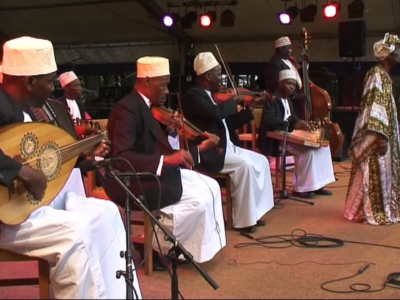
Foto de Inaciu Galán y usada con autorización..
Como parte de nuestra serie en curso que destaca el trabajo de activistas que promueven lenguas minoritarias y regionales europeas en los espacios digitales, nos gustaría presentar a Inaciu Galán (@inaciugalan), que trabaja para promover la lengua asturiana desde Asturias, en el noroeste de España. Según Ethnologue, esta lengua está en peligro de extinción y cuenta con unos 100 000 hablantes nativos y otros 250 000 hablantes como segunda lengua.
Rising Voices (RV): Háblanos de ti y tu trabajo relacionado con los idiomas.
Inaciu Galán (IG): I am a journalist and teacher and I have taken my activism in favor of the Asturian language and the rights of its speakers to all areas of my life. I have worked as an editor, radio and television presenter, disseminator of the Asturian language in networks, I have published research on the history of Asturian.
In 2011, together with Víctor Suárez, I helped to launch the Iniciativa pol Asturianu Foundation, an NGO that works to achieve the recognition of the rights of Asturian speakers in all the territories where it is a traditional language. On May 6th – Asturian Literature Day, I will be appointed as a member of the Academy of Asturian Language.
Inaciu Galán (IG): Soy periodista y profesor, y he llevado mi activismo en favor de la lengua asturiana y los derechos de sus hablantes a todos los ámbitos de mi vida. He trabajado como editor, presentador de radio y televisión, divulgador de la lengua asturiana en redes, y he publicado investigaciones sobre la historia del asturiano.
En 2011, junto con Víctor Suárez, ayudé a iniciar la fundación Iniciativa pol Asturianu, ONG que trabaja para conseguir el reconocimiento de los derechos de los hablantes asturianos en todos los territorios donde es una lengua tradicional. El 6 de mayo, Día de las Letras Asturianas, seré nombrado miembro de la Academia de la Lengua Asturiana.
RV: ¿Cuál es el estado actual de tu lengua, en línea y fuera de línea?
IG: Our language has a major problem of the breakdown of generational transmission and a lack of recognition of rights, but it has a very active community behind it that has been working hard for half a century to achieve the survival of the language. The presence in social networks, but also in schools, etc. is very wide and varied.
IG: Nuestra lengua tiene un gran problema de ruptura de transmisión generacional y de falta de reconocimiento de derechos, pero cuenta con una comunidad muy activa que lleva medio siglo trabajando duro para conseguir la sobrevivencia de la lengua. La presencia en redes sociales, y también en las escuelas, etc., es muy amplia y variada.
RV: ¿Cuáles son tus razones para que tu lengua esté presente en los espacios digitales?
IG: I wish I didn't have to be an activist, but I had to because of the situation of my language. The digital sphere makes it possible to reach a lot of people in a simple way and to do so with the younger generations in mind. That is why, among the initiatives I started, there is PlayPresta, a space to create and disseminate spaces for YouTubers and podcasters in Asturian.
IG: Ojalá no tuviera que ser activista, pero he tenido que serlo por la situación de mi lengua. El ámbito digital permite llegar a mucha gente de forma sencilla y llegar pensando en las nuevas generaciones. Por eso, entre las iniciativas que puse en marcha, está PlayPresta, espacio de creación y difusión para youtuberos y podcasters en asturiano.
RV: Describe algunos de los retos que impiden que tu lengua se utilice plenamente en línea.
IG: The lack of recognition of the language means that it is not the vehicular language of the main social networks. Although thanks to the voluntary work of many people, we have many free software tools in Asturian, there is still a long way to go. The framework conditions users of a minority language in a diglossic situation.
IG: La falta de reconocimiento de la lengua hace que no sea la lengua vehicular en las principales redes sociales. Aunque gracias al trabajo voluntario de muchas personas disponemos de muchas herramientas de software libre en asturiano, aún queda mucho camino por recorrer. El marco condiciona a los usuarios de una lengua minoritaria en situación diglósica.
RV: ¿Qué medidas concretas cree que podrían tomarse para animar a los jóvenes a empezar a aprender tu lengua o a seguir utilizándola?
IG: For almost forty years Asturian has been in schools, but in a voluntary and very precarious way, with only a few hours of instruction, centers where it is difficult to receive the subject and a very unstable situation for the teachers who teach it. If we were able to generalize the subject and give it a greater timetable, we would have many opportunities. But it is not enough, we need to create attractive content for young people, in the form of audiovisuals, music, applications, games. We need to make the language useful for future employment, loved by speakers, and fun for life.
IG: Desde hace casi 40 años el asturiano está en las escuelas, pero de forma voluntaria y muy precaria, con pocas horas de clase, centros donde es difícil cursar la asignatura y una situación muy inestable para los profesores que la imparten. Si pudiéramos generalizar la asignatura e impartirla durante más horas, tendríamos muchas oportunidades. Pero esto no es suficiente, hay que crear contenidos atractivos para los jóvenes, en forma de contenido audiovisual, música, aplicaciones, juegos. Tenemos que hacer que la lengua sea útil para el futuro empleo, que a los hablantes les guste y que sea divertida para la vida.







